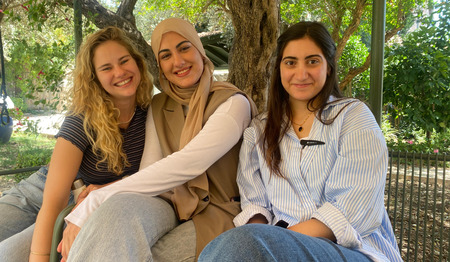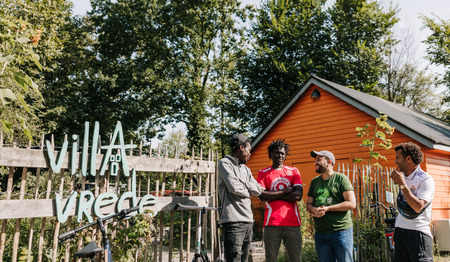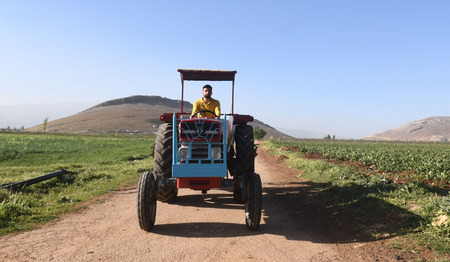Pakistan: business start-ups as inroads to conflict transformation
Markets can contribute to processes of exclusion when prohibiting access to certain groups, but they also have the potential to bring people together. They create interdependence, for we all need to earn and eat. They can provide space for the daily encounters and small talk that ‘cements’ a community.
Context
Although Islam is the majority religion in Pakistan, it may be called religiously diverse because of the variety of Muslim sects (such as Sunnis, Shia, Sufis and Ahmadiyyah) and religious minorities (such as Hindus, Christians and Sikhs) inhabiting the country. The Shared Futures project in Pakistan is implemented in two areas: in the urban setting of Islamabad and Rawalpindi and in the rural districts of Rahim Yar Khan and Ghokti, South Punjab.
The South Punjab districts are amongst the least developed in the country. The inhabitants of this rural area struggle against poverty, have little access to education and economic opportunities, and Hindu and Christian communities suffer severe forms of discrimination. The ‘twin cities’ of Islamabad and Rawalpindi are home to a variety of ethnicities, religions and lifestyles. Despite this cosmopolitan outlook, however, members of minority religions mostly live in segregated semi-formal settlements and have little interaction with other faith communities.
Establishing business relations
In both areas, Shared Futures partners Rural Education and Economic Development Society (REEDS), and the Pakistan Mission Society (PMS) provide vocational training and business support to unemployed youth who might otherwise feel tempted to join criminal or extremist groups. What discerns the Shared Futures approach from other programs targeting unemployed youth is that it also seeks to establish business relations across different religious groups. New interfaith relations are emerging already at the vocational institutes where students from different faith groups share classes, write CV’s and develop business proposals.
Conflict transformation process
Although most youth seek individual employment following the training, in some cases students from different faith groups decide to establish a business start-up together. Thus, local businesses and shops begin to emerge where members of different faith groups mingle and meet. Such interfaith trade and business locations may ignite a conflict transformation process in the wider community. They increase the familiarity between faith groups and help to reduce intergroup anxieties and prejudices.
Story of Change: Urfa
"I am Urfa Habib, a beautician by profession from the Rahim Yar Khan district. I have been an active participant of the Shared Futures project for the last two years. Normally girls in my village are not encouraged to travel alone to go to school or work. Girls of my age remain at home or just get married. The Shared Futures team convinced our parents and elders. They told them that skills education allows girls to earn a living and support the family household."

"After joining Shared Futures, I completed an advanced beautician training, developed a business plan and received a grant to open my own beauty parlour. This was an uplifting experience. Besides the income I could generate thanks to this support, it increased my self-esteem and made me a confident entrepreneur."
"I am a Muslim, but I share the beauty parlour with my business partner who is a Christian. Sharing our business increases the number of customers: members from both the Muslim and the Christian community are now visiting our shop. Customers see the benefit of interfaith harmony with their own eyes because we all serve them in the same place. Our peaceful behaviour has a positive effect on our income as well; we can now divide the expenses between us."
"We had to close our beauty parlour during the Covid-19 lockdown and could not cover our monthly expenses. We could survive thanks to the Micro Entrepreneurs Development Network that was established by alumni of the Shared Futures project. As members of this network, we are all saving on a voluntary base and support each other by providing loans for medical needs, school fees and business expansion."
"We established our beauty parlour only just a year ago, but it already attracts customers from afar. I earn between PKR 18.000-20.000 (90-100 Euro) per month and can cover my family’s expenses. I am already expanding my business, adding the sale of female undergarments and cosmetics."




